When your child comes to Malvern, they begin a journey that will shape certain characters and traits. We believe this is important to their continued success in life beyond school. We do not say that the Malvern Qualities are the only ones which can be instilled in young people, but we have noticed that our students do benefit, to an extraordinarily positive degree, from the focus placed on them. Spurred on by these qualities, our students become experienced independent thinkers with a realistic approach to understanding their own talents and abilities. They develop the capacity to see themselves as others see them and their interpersonal skills are also boosted. Malvernians strive for success, but they can also cope with setbacks, they are confident, but not arrogant, they see learning as a lifelong experience and, with guidance and a nurturing of the Malvern Qualities, they become more optimistic about their futures.
The Malvern Qualities have a circular dimension inasmuch as each one can have an influence on several others and as such, they are not listed in any specific order: Ambition, Risk-taking, Resilience, Self- awareness, Open-mindedness, Kindness, Collaboration, Curiosity, Independence, Humility and Integrity are all qualities we aim to instil in equal measure in our students here at Malvern.
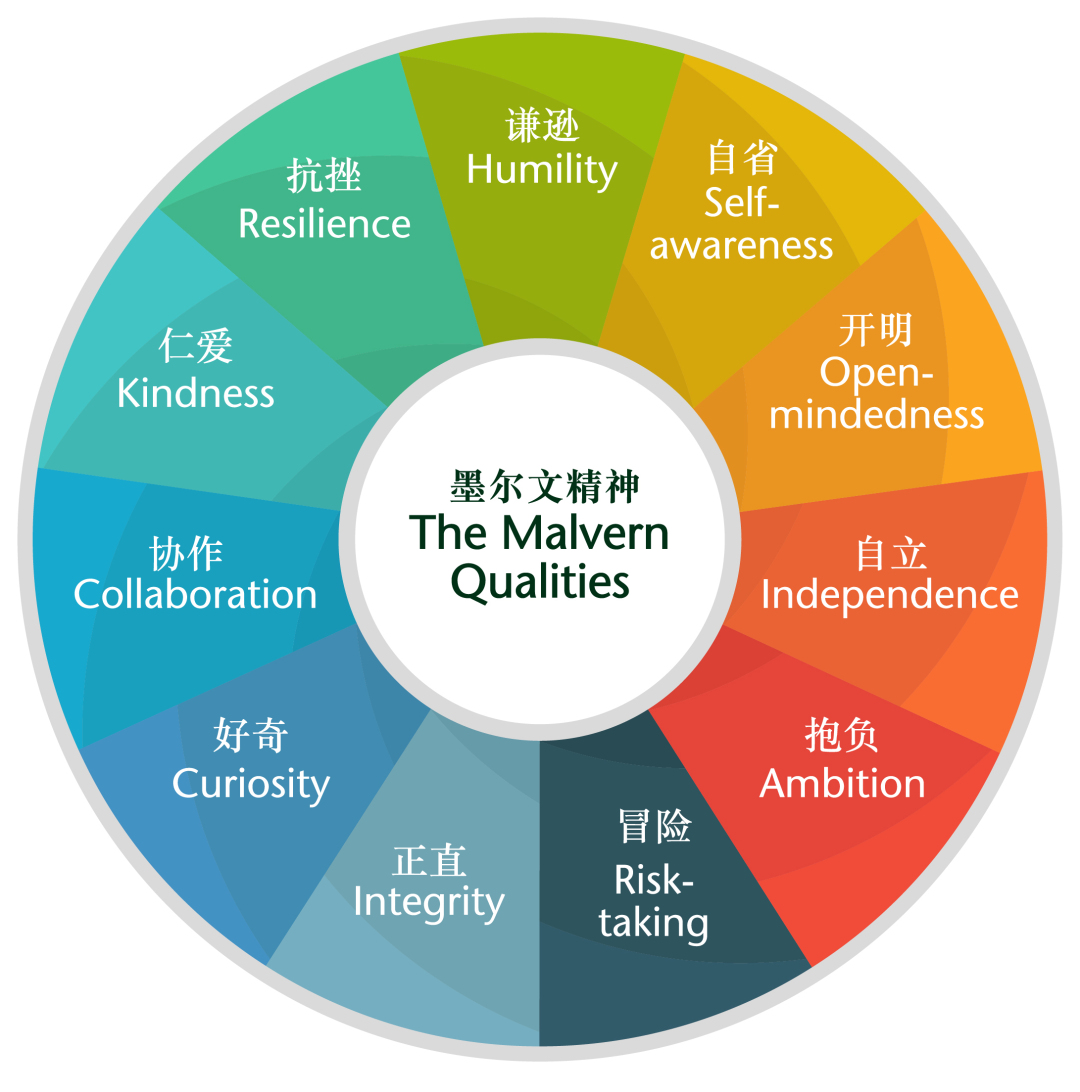
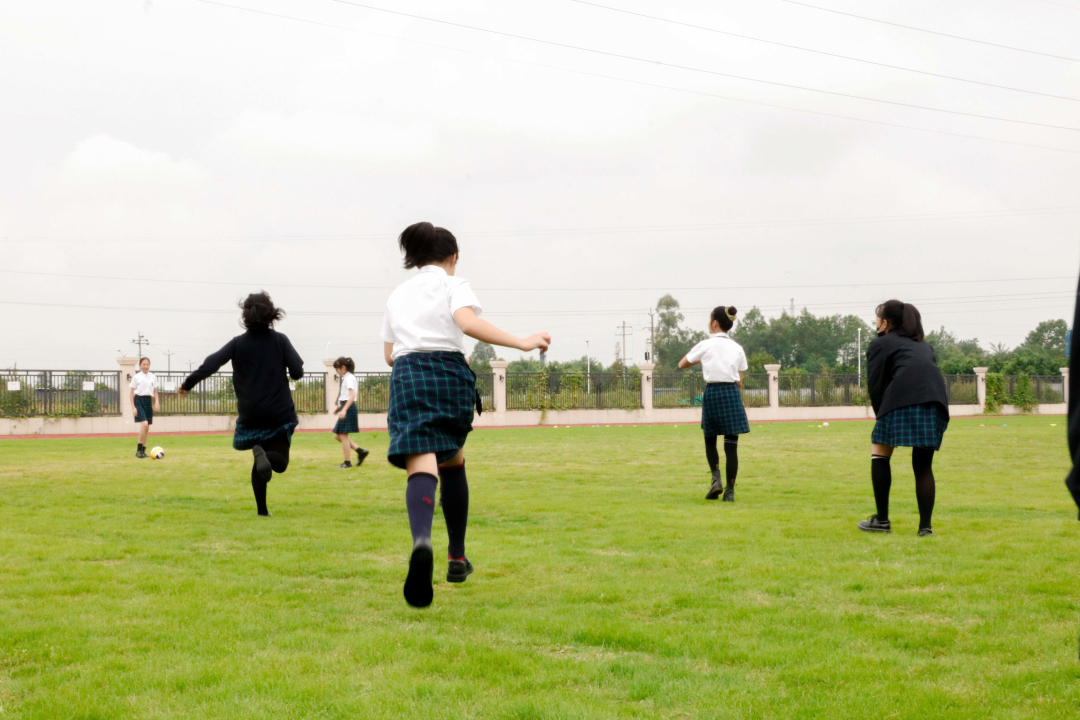
Resilience is the ability to pick yourself up when you get knocked down; an inevitable part of life. It is also the ability to respond positively to setbacks, to learn from them, and to deal with challenges with confidence and good humour.

The vast majority of children are naturally curious. They want to know how things work, what words mean, and where places are. Curiosity is an inherent part of human nature. It is a trait which should last forever; through childhood into adolescence and on to adulthood. It is our natural curiosity which helps define who we are as humans. It drives us to put men on the moon, to understand the human genome and to create AI. It is therefore something that we embrace, encouraging all our children to use their curiosity in all aspects of their learning.

To be self-aware is to know yourself, to know your strengths and weaknesses, to know how you appear to others and understand how you fit into the world around you. Possessing self-awareness allows you to set yourself realistic goals, to take responsibility for your actions and to develop a resilience to see you through disappointment and enable you to accept success with humility.

Kindness is something that underpins a civilised society and we believe it must therefore form the very foundation of a good school. ‘Constant kindness can accomplish much. As the sun makes ice melt, kindness causes misunderstanding, mistrust, and hostility to evaporate.’ Albert Schweitzer. In a school environment, acting with compassion gives you the confidence and resilience to cope with many things in life. In addition, it helps a child to develop a sense of empathy for others which in turn encourages more kindness. It is, in a sense, what keeps a community together.

To be independent requires an ability to take care of our own individual needs, to make decisions and to assume responsibility for them. An independent learner has the self-motivation, confidence and curiosity to develop their own learning style. In doing so they become aware of their own strengths and weaknesses and also develop important personal character traits such as critical thinking, persistence and the ability to be accountable for their actions. The degree to which each of us succeeds in becoming independent varies, because it is often associated with age so,
as we mature, so does our confidence in being able to take control of our learning and personal needs.
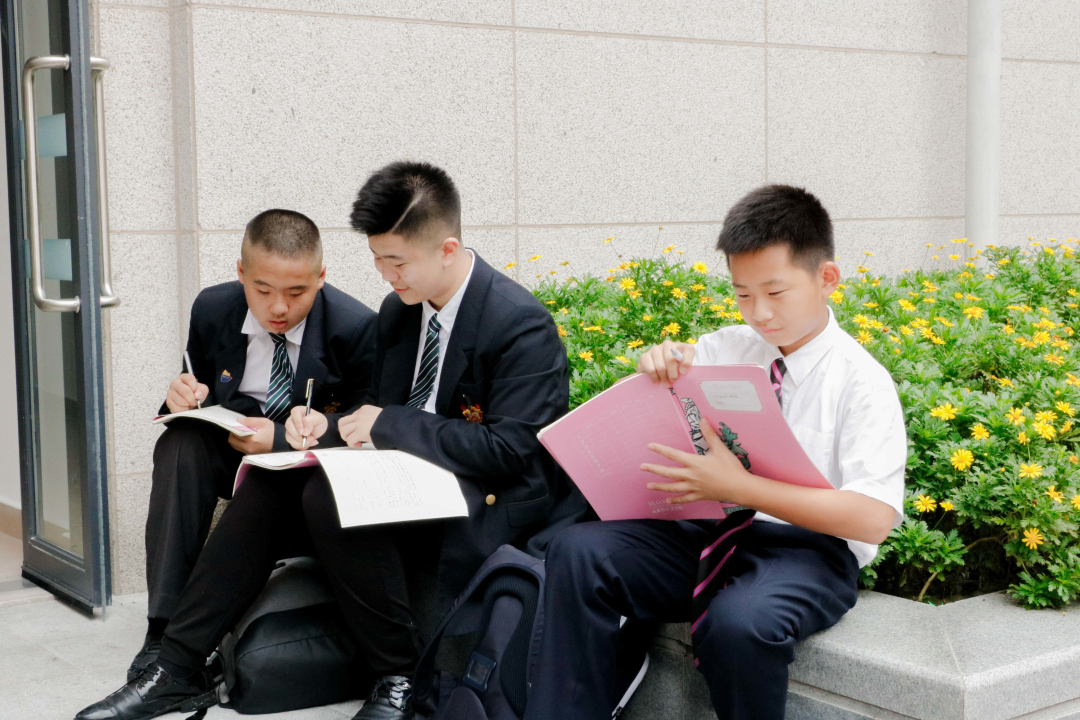
It is not what we do, but who we are and how we treat other people for which we will be truly remembered. This statement captures the essence of integrity. To be a person of integrity is to be honest and to possess strong moral and ethical beliefs. Stemming from the Latin word ‘Integer’ meaning ‘whole and complete’, integrity requires a ‘wholeness of character’. A person shows their integrity when they consistently act according to the values, beliefs and principles they claim to hold, no matter how stressful a situation might be.

As a healthy and necessary component of human nature, ambition is key to the way we perceive ourselves and the aims we have for our future. Most people want to fulfil their potential, to grow in self-confidence and in doing so to develop the ability to challenge themselves in the hope of creating exciting and fulfilling futures. However, occasionally ambition can become too powerful an instinct, with the risk being that it overrides other qualities like kindness, integrity and humility. Ambition, in the right measure can be very powerful, and when used effectively alongside other
essential qualities, can bring real success.
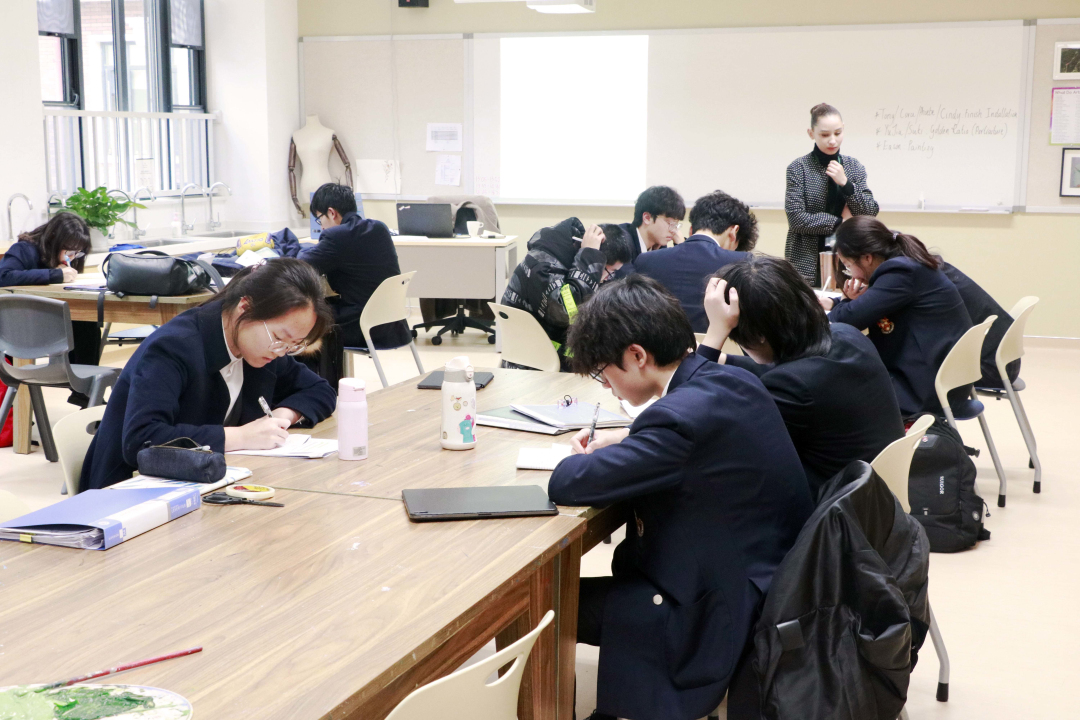
Being open-minded is to be accepting of the wide range of beliefs, opinions and cultures that make up the modern world. At the same time, it requires you to have an understanding and appreciation of your own belief system and culture. Accepting people who hold views different to your own and respecting those differing points of view are vitally important to being open-minded. Finally, a global outlook and a willingness to actively contribute to a multi-cultural society also reflects this mind-set.

Appropriate ‘Risk-taking’ means having a willingness to step out of your comfort zone in order to experience new things. It involves the need to challenge yourself and to not be overly concerned about the risk of failure or of being exposed as weak. Risk-taking provides another route for personal growth and introduces many opportunities for new experiences for those who are willing to take on a little risk!
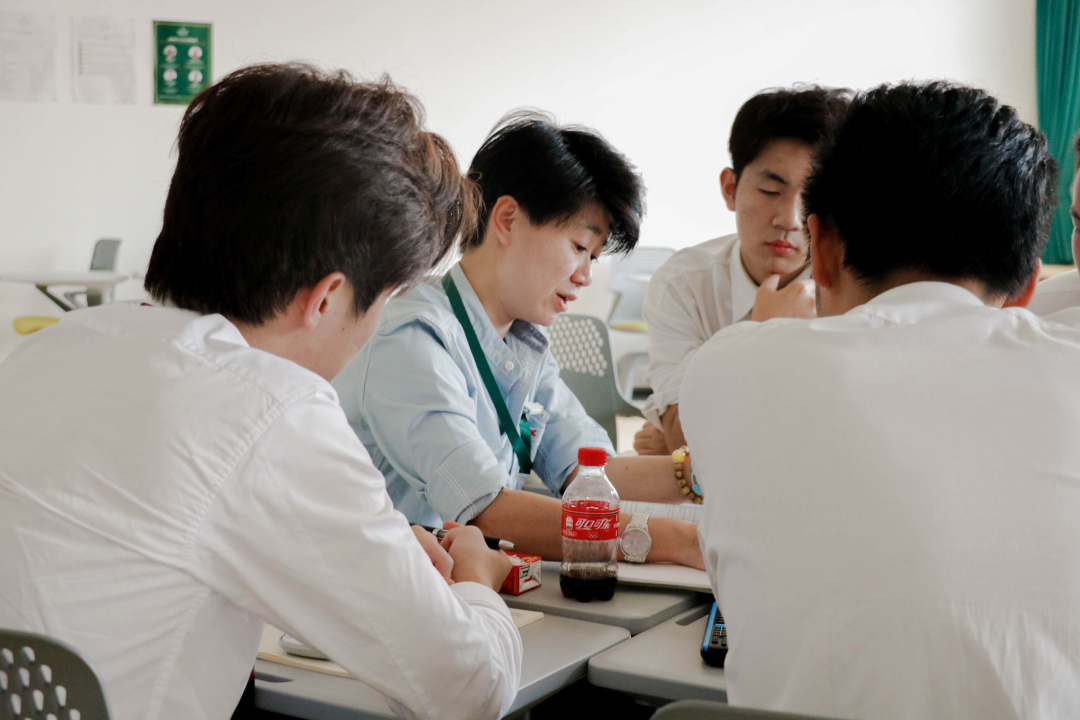
Collaboration is the ability to work with others, to recognise other people’s strengths and to know when, and how, to include others in the learning process. A desire to work for the common good, to appreciate the worth of others and to draw on the strengths of those around you whilst at the same time recognising your own weaknesses are key to successful collaboration. Collaboration is dependent on clear communication and on learning from, as well as with, others. Through collaboration we all learn together. In learning together, we build a solid framework of knowledge through which our ideas can be tested, our arguments examined and eventually transformed into actions for the benefit of all.

To show humility is to be humble, to put the needs of others before our own, and to think of others before ourselves. Humility also requires us to accept that we are not always right, and that we don’t need to draw attention to ourselves all the time! Those who behave with humility are more accepting when things go wrong and they are also more receptive to opportunities for self-improvement.

